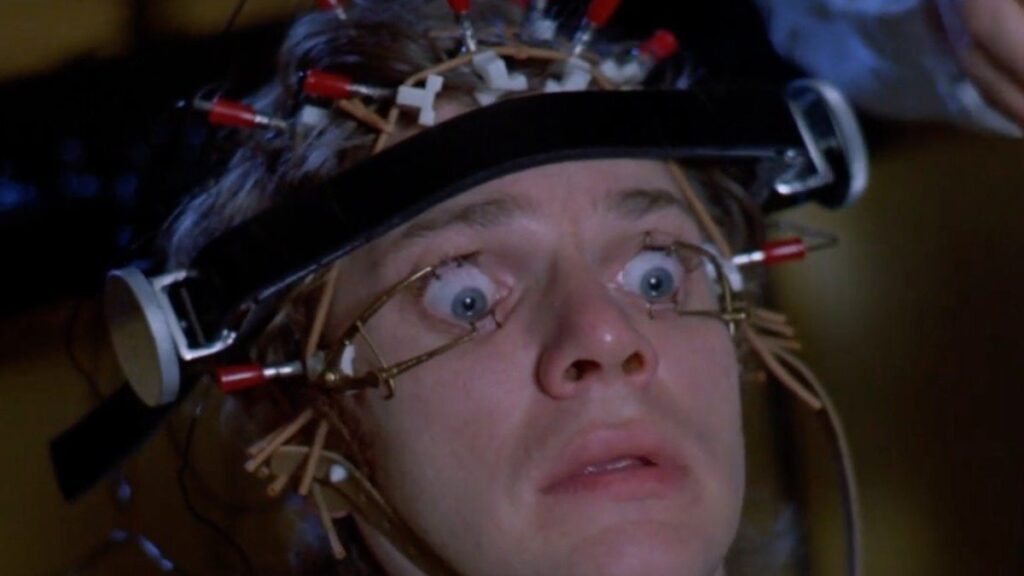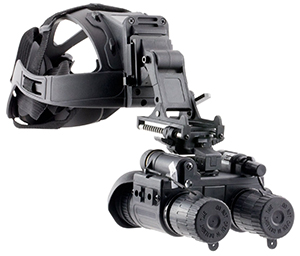
The idea of getting LASIK surgery before the apocalypse has been gaining steam ever since Steve Huffman, Reddit CEO and cofounder, told The New Yorker he got laser eye surgery in 2015 to increase his odds of survival in the event of a natural or manmade disasters.
If the world ends—and not even if the world ends, but if we have trouble—getting contacts or glasses is going to be a huge pain in the ass. Without them, I’m f***ed.
Steve Huffman, January 30th issue of The New Yorker
Preppers with poor vision have wondered what would happen if there weren’t any glasses, contacts, or any vision correction available. How would they overcome the challenges of not being able to see in a post-apocalyptic world?
by Logan Misseldine, contributing writer
This is a question that has been asked a lot recently, and one of the popular answers to these questions has been one thing:
LASIK Surgery
But there are no guarantees with the human body, and the structure of the eyes is already fragile enough before trying to operate on them. While on paper it sounds like a no-brainer, the devil is in the details.
What is LASIK Eye Surgery?

Approximately 75% of adults need some sort of assistance with their vision according to the Vision Council of America. Whether they use eyeglasses, contacts, or a combination of both, the demand for effective vision correction is high.
Of all the ways to enable people to see better, one of the most pivotal procedures that has come from modern Western medicine is LASIK eye surgery.
LASIK is an acronym that stands for “Laser-assisted in situ keratomileusis.” This is the scientific way to say laser eye surgery. The surgeon uses a series of incisions and the laser to correct the cornea to allow light to be bent in the correct way, this is the same thing that glasses and contacts do.
How is LASIK Performed?

LASIK is not a lengthy procedure, often completed in half an hour. You are put into a chair, possibly given something to help you relax, and then the doctor will get to work on your eyes. They will prop open your lids and numb the eye being worked on. Then, with a small blade or laser, cut a small flap across your eye to gain access to the cornea.
You stare at a certain point to allow the pre-programmed laser to be able to work away at your cornea. Little by little the laser will remove corneal tissue to gain the desired shape. Then the doctor will put the flap back into place and start the post-operation process.
It may take up to two or three months for your vision to be completely corrected (as long as no complications arise).
Because of the fragile nature of our eyes and depending on how intense the error in your eye is, the surgery may not have done enough in the first session and may need to be repeated. It is generally accepted that the better your eyesight before the surgery the better the results will be.
In rare cases one’s vision returns to the level it was before the surgery, whether because of improper healing, cataracts, or anything that leads to the deterioration of the eye.
Are You Eligible for LASIK Eye Surgery?
It’s unfortunate, but if you’re over the age of 40, your benefits start to drop off. Those 40 and older may have presbyopia, where the lens of the eye becomes stiff and hinders close-up vision. LASIK has nothing to do with the lens, so manipulating the cornea will not do a bit of good to those with stiff lenses.
The thickness and shape of your cornea can disqualify you as well. Some people have very thin corneas, others are so disfigured that no matter what they try to do it will not have the desired results. For those with thin corneas a similar surgery, photorefractive keratectomy (PRK), can work for them since their corneas are not structurally sound enough for the flap LASIK requires.
Post-Apocalyptic LASIK Pros
Once completed, and assuming all went well, you will have immediate and longer-term benefits.
1. You Will Most Likely See Better
It is well understood that when you go in to get your eyes operated on you will be better off when you leave. You will not be gifted any sort of extraordinary powers of sight (I think), but what was once blurry should now be clear.
You will be able to see your targets more clearly. You will be able to spot someone carrying concealed handgun more reliably. You will also be able to struggle your way through emergency war surgery more effectively… okay, maybe not on that one.

2. You Won’t Need to Rely on Contacts or Glasses
This is the massive benefit behind getting LASIK surgery. If you’re on the run from zombies, you don’t have to worry about dropping your glasses. When the world locks down from a pandemic, you don’t have to worry about running out of contact lens cleaner (always buy extra if this applies to you).
3. You Will Potentially Save Money (to Spend on Other Preps)
LASIK can cost you anywhere from $1,500 to $3,000 per eye depending on where you go to get the procedure done. The cost may not be covered by insurance, but it’s relatively cost effective compared to other surgeries. It can look like a steep price, especially if you must foot the bill yourself, but compare it to the average annual cost of eyeglasses and contact lenses and you might be singing a different tune.
On average the cost of eyeglasses can start around $450 or more. For contact lenses it can start from $900. If you get LASIK, (and there are not any major complications), you will cut these costs out of your life, leaving you with just that more cash in your pocket for other things – like survival coffee with a 25-year shelf life.
Post-Apocalyptic LASIK Cons
Any advantage comes with a disadvantage. LASIK is no different.
1. There are Risks
Even if everything is going well in the beginning, sometimes things just go awry. These factors could impact your post-collapse survival:

- Dry eyes are a common side effect from having LASIK done and it can last up to three months. While it’s rare, it can persist into a much longer lasting problem.
- You can go blind! Imagine losing your glasses after a SHTF scenario. Now imagine being blind. Accidents happen, but with the improvements that have been made the room for this error is significantly lower than it used to be.
- When you get LASIK the doctor will cut flaps into your eyes, pull them over, then get to work on your cornea. He then flips them over and that’s it. There are no microscopic sutures, no glues, nothing to secure it down after the surgery is over. Even with a good surgeon it can become dislodged years later if you rub it hard enough or something scrapes across it. This will force you to go back to your doctor to try and correct this mishap.
- The surgery can make it harder for you to see in dim light and at night. For a short time after you get the surgery it’s not uncommon to notice glare and halos around bright lights, even double vision. But sometimes they won’t go away when you try and walk around after the sun goes down or you walk into a dimly lit basement. On the upside, this may be the opportunity you’ve been looking for to buy military-grade high-end night vision goggles.
- Sometimes you won’t go blind from the surgeon’s error, but the surgery may either over-correct or under-correct your cornea. This can sometimes even lead to astigmatism, forcing you back into using contacts or glasses. The exact opposite result you were looking for going into the procedure.
- While it’s incredibly rare to get an infection due to having LASIK done, things can happen. Oftentimes as long as you continue with proper post-op care and following the recommendations from your doctor, this won’t happen. Infections are never good but for something as sensitive as the eye, I can’t even imagine the agony and damage it would cause.
2. You Might Need it Again
While after you get LASIK your vision will never return to its original level, a condition known as myopic regression can cause your vision to lose its quality. Forcing you to go back and get your corneas re-adjusted. You may not even be able to correct this and be forced back into correcting your vision with the more traditional tools.
3. It Can Cost $1,500-$3,000 Per Eye
That might be a longer-term cost saver, but not everyone has that much money lying around. Besides, imagine how much survival coffee with a 25-year shelf life that would buy. The ability to ditch your glasses or years’ worth of post-apocalyptic coffee? Tough call.
Should You Get LASIK?
Despite the overwhelming benefits better vision can have on your survival, if TEOTWAWKI suddenly hit, I do not think you should get it merely for the apocalypse. There may be much more time than we think between then and now.
Of course, it is always possible to witness an apocalypse. That is part of why we prep; and if you have to witness it, “seeing” it unfold would be a lot easier if you did not have to rely on glasses or contacts.
That said, LASIK is a good procedure for the right people in the right circumstances, so it could not only benefit you should SHTF, but for general life today and tomorrow. If that describes you, the question instead might be – why not?

1 comment
I’m not going to take that step. I remember the Twilight Zone episode where Burgess Meredith only wanted to be left alone to read. He survived nuclear war and went to the library with a bunch of snacks and promptly broke his glasses. Well, he should have crawled down to the demolished optometrists place and started trying out the lenses till he found some that worked. It’s not that hard to do.
Teddy Roosevelt took eight pairs of glasses with him to Cuba. Eyeglasses are cheap these days, so it’s easy to have replacements. You could probably talk your Dr. into prescribing a higher strength glass that you can have on hand just in case.
This Steve Huffman? He lives in San Francisco. It’s a beautiful town, but not a place you’d be living if you really had a plan to survive the apocalypse.